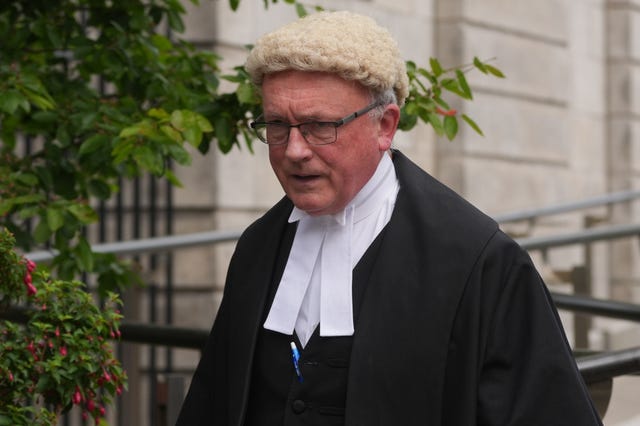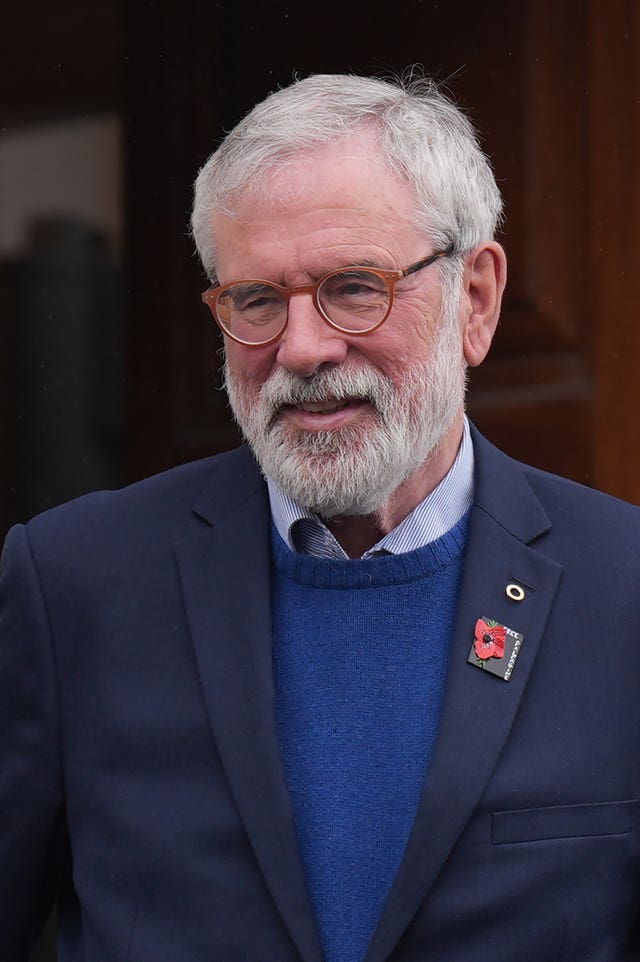The high-profile trial at Dublin High Court has entered its fifth week.
The judge in Gerry Adams’ libel action against the BBC is continuing to summarise the evidence in the case for jurors.
The high-profile trial at Dublin High Court has entered its fifth week.
Former Sinn Finn leader Mr Adams alleges a BBC Spotlight programme, and an accompanying online story, defamed him by alleging he sanctioned the killing of former Sinn Fein official Denis Donaldson, for which he denies any involvement.
Mr Donaldson was shot dead in Co Donegal in 2006, months after admitting his role as a police and MI5 agent for 20 years.

In the programme broadcast in September 2016, an anonymous source given the pseudonym Martin claimed the shooting was sanctioned by the political and military leadership of the IRA and that Mr Adams “gives the final say”.
In 2009, the dissident republican group the Real IRA claimed responsibility for the killing and a Garda investigation into the matter is ongoing.
Mr Adams claims he was subject to a “grievous smear” while the BBC has described the legal action as a “cynical attempt to launder his reputation”.
The high-profile republican is seeking damages of at least 200,000 euros (£168,000) from the BBC.
However, the British public service broadcaster has argued it would be a “cruel joke” to award the former Sinn Fein president any damages.
Trial judge Mr Justice Alexander Owens is currently taking the jury through the evidence which was heard in the case during the previous four weeks.
On Tuesday morning, he continued summarising the evidence Mr Adams gave when he appeared as a witness earlier in the trial.

When the judge concludes his remarks the jury will be sent out to begin their deliberations.
The jury will be asked to decide whether the words in the Spotlight documentary and the online article meant Mr Adams sanctioned and approved Mr Donaldson’s murder.
They will also be asked to decide what the words means to a reasonable member of society and whether the BBC acted in good faith and was fair and reasonable in its story.
If the jury agrees with Mr Adams’ legal team on what the words mean and rejects that the BBC acted in good faith, they will then be asked to decide on damages.
Mr Adams has previously said he would donate any damages to good causes.
The trial continues.

